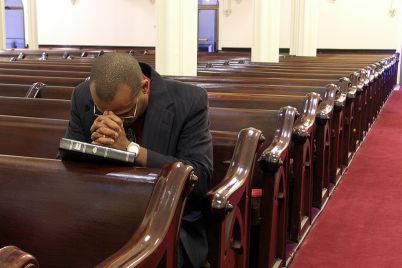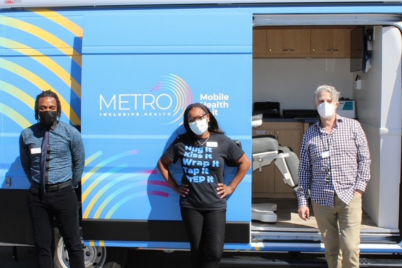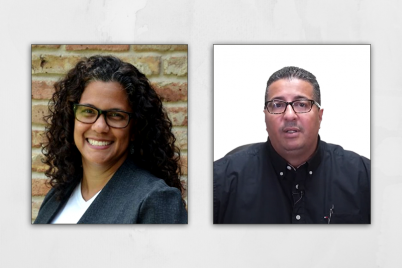BY J.A. JONES, Staff Writer
TAMPA BAY — Stigma is clearly on view in the fight to provide more affordable housing throughout the country – and the Tampa Bay area reflects the struggle. According to The Sadowski Coalition‘s 2020 “Home Matters” report, only 26 affordable and available homes are available for 100 renters seeking housing.
Whether this is caused in part by “nimbyism,” which comes from the acronym for “not in my backyard” – a sentiment displayed by homeowners that reject the idea of affordable housing being erected anywhere near their property – or by lack of political will by legislators to put affordable housing mandates in place — the situation doesn’t seem to be improving.
Add to these realities a health challenge, especially one as stigmatized as HIV/AIDS, and finding stable housing becomes even more difficult – and yet, there’s still only one Federal program designed to assist this population.
The Housing Opportunities for Persons With AIDS (HOPWA) Program is still the only Federal program addressing the housing needs of those living with HIV/AIDS. Under HOPWA, HUD supplies grant dollars to states, local communities, and nonprofit organizations to supply housing vouchers and support for low-income people with HIV/AIDS and their families.
The City of Tampa runs the HOPWA program for four counties — Hernando, Hillsborough, Pasco and Pinellas. With a higher number of new infections annually than the other three counties, Hillsborough receives a larger share of funding.
Kayon Henderson, community development coordinator for the City of Tampa and a HOPWA program coordinator, shared, “We’ve certainly seen an uptick one from the number of those who are infected by HIV, as well as the infectious rate.” Henderson said that while they track people who are homeless who enter the program, most of their clients are already renting but can no longer afford to pay the rent.
“We get might be someone who is in a rented apartment, but it’s become really hard for them to continue to work because with this disease sometimes you can be really well today, and really sick tomorrow…and they’re just needing some assistance to be stably housed,” she noted.
When asked whether funding for the program was an issue, Henderson acknowledged there were still residents who needed help. “We certainly could use more funding because we have unmet needs. We have agencies who do offer that tenant-based rental assistance program for individuals but who have a waiting list. As long as we have a waiting list, we don’t have enough funding.”
Henderson pointed out that this was also due to rising rents — because rental units are going up in price, some agencies weren’t able to as many households.
Jack Humburg is director of Housing Development at Boley Centers, Inc., which oversees the HOPWA program in Pinellas. Humburg said that while they currently have 121 clients in the program, the Boley waiting list is closed.
“At the moment, we haven’t been able to grow unfortunately as much as we would like to,” Humburg relayed, saying that the annual renewals received from the city of Tampa only enable the program to continue to fund the people that we are already assisting. “We hope folks will get self-sufficient and not need our assistance, but that doesn’t happen often,” he said, noting that Boley will continue to support clients as long as they are able.
He also added that it’s often difficult for HIV and AIDS clients to even find housing, with rents going up, along with the stigma of being in a voucher program. “Rents are rising every year, and housing availability is challenging for an individual who has a voucher; landlords are not required to accept a voucher. So there certainly are some landlords who will not participate in the program.”
Danielle Husband is the senior director of programs for Catholic Charities, Diocese of St. Petersburg, which runs their HOPWA program with the City of Tampa through three levels of care — Mercy Apartments, Mercy House, and a tenant-based rental assistance. After a woman applies and is accepted into one of their programs, Husband said, “We’ll work with somebody, but they have to be willing to live in Hillsborough County because everything is centered there.”
A 25-year-old mother and Mercy House resident who spoke on condition of anonymity said the program had helped her turn her life around. “I’ve been HIV positive my whole life, and I’d never heard of this program until my daughter was born in 2020. It’s actually very helpful,” she noted, stating that as well as offering temporary housing, the program helps financially with rent, meals, and medical.
“It’s actually a really good program,” shared the young mother, who has been living at Mercy House for seven months. “They told me the two-year-program, and I was okay with that,” she continued, stating that Mercy House counselors were helping her on the search for an apartment of her own.
The 25-year-old mom, who contracted HIV from her mother in utero, said that she wished there were more education and less ignorance about HIV and AIDS – revealing that she was bullied at school when she was young after other students found out she was living with HIV.
“I was teased and bullied because I have it, and people thought they could get it just by holding hands or hugging me — you know, simple things that people do every day with their family or their spouse. I just wish there were more programs that explained the correct way of protecting yourself. A lot of people judge and are very hypocritical about the situation of people having HIV.”
Today she is feeling optimistic about her life, the help she has received through HOPWA, and even living with HIV, saying, “Maybe God put me this way for a reason — to help other people understand it.”
Visit HOPWA’s website, https://housingforbetterhealth.com, to learn more about partner organizations, like Empath Partners in Care (EPIC), which also runs a tenant-based rental assistance program for those with HIV/AIDS and their affected family members. You can call EPIC in Pinellas at 727-467-7423 and in Hillsborough at 813-237-3066.
To reach J.A. Jones, email jjones@theweeklychallenger.com












